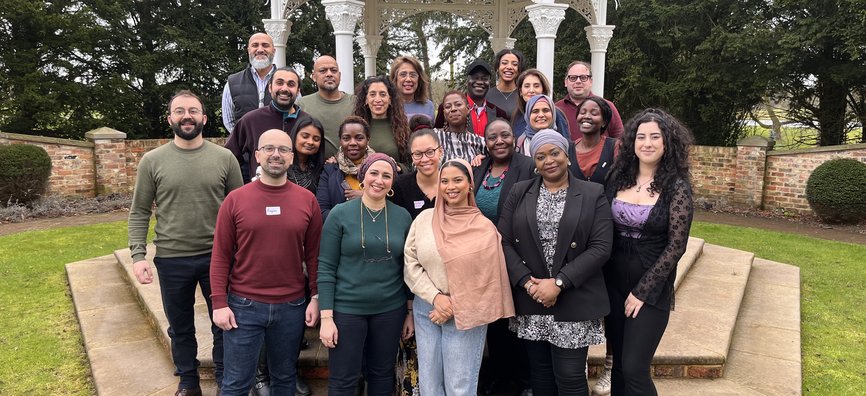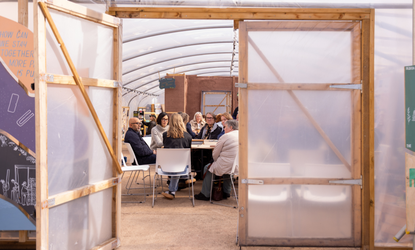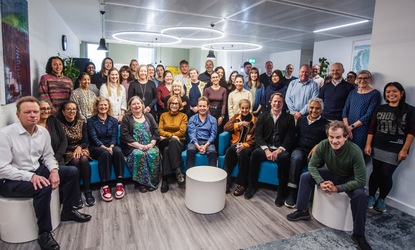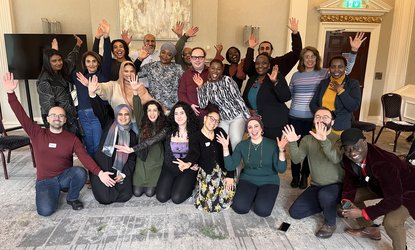A new report on Inclusive Histories by British Future explores how arts and culture organisations are reflecting the complexity of our shared past, engaging communities to help shape the work, and navigating polarised responses.
Telling those parts of the stories of art make our lives - and the works - richer. They increase our understanding of ourselves and one another. After a long history of exclusion, to include now is not to begin to exclude again.”
Luke Syson, Director of the Fitzwilliam Museum
At Esmée Fairbairn Foundation, we believe that arts and culture is key to building a fairer future for people and communities in the UK. Museums, galleries, and heritage institutions play a vital role in this as places we go to learn and expand our view of the world around us, as well as ourselves. They provide spaces for connection and creative engagement, opening doors to new ideas and discussion on challenging issues from our past and present.
Breaking down barriers
Museums understand how important collections and the stories they can tell are to people. They recognise their power to break down barriers to access and inclusion. To do this, they are working with diverse communities to re-examine their collections to share stories that have previously been hidden or not told.
Together with Art Fund and Paul Hamlyn Foundation, we commissioned research on Inclusive Histories to explore the range of ways arts and culture organisations have been engaging in this valuable work and working with communities to shape it. As independent funders working in the arts, we wanted to understand what more we could do to support the sector to look bravely at our shared past.
It’s encouraging to see the appetite and support for this work to grow – from both the public and arts and culture organisations. There is also more help for practitioners to engage and build confidence in reflecting inclusive histories. The Museums Association has gathered a range of resources on Decolonising Museums to support and inspire museums to address the legacy of British colonialism.
Making an impact
We’ve also seen the impact of this work, particularly through grants made by the Esmée Fairbairn Collections Fund, which is managed by the Museums Association. For example, work we supported in 2018 include:
- St Paul’s Cathedral with a grant of £90,000 for a community engagement project showcasing a diverse range of thought provoking, individual responses to the Cathedral’s monuments and imperial connections. 50 Monuments in 50 Voices aims to build meaningful relationships with more diverse audiences and enhance understanding of the collection.
- Buxton Museum with a grant of £120,000 to support them to revisit 20th century acquisitions and undertake a detailed and thoughtful review and rationalisation of the Derbyshire and Derby Schools Library Service. The work aims to uncover stories and truths in search for new audiences, and led to the return of a collection of Native American and First Nation artefacts to their original communities.
- Horniman Museum with a grant of £120,000 for a community engagement project celebrating Black music in south London. The work saw the development of new insights into their musical instrument collection and a programme of gigs, installations, talks and new works, co-produced with musicians and young people from the community.
Sharing insights from practitioners
British Futures’ Inclusive Histories research highlights why it’s important that arts and culture organisations do not ‘lean out’ of debates about our past. It outlines the need for the sector to be bold and gathers useful examples of good practice of inclusive histories work. The report also features commentary from practitioners including Luke Syson (Fitzwilliam Museum), Sandra Shakespeare (Museum X) and Charlotte Morgan (Cornwall Museums Partnership), Professor Corinne Fowler (National Trust), and Professor Patrick Vernon OBE (Windrush 75 Network).
We’re grateful to everyone for sharing their insights and to British Future for their work in carrying out this research. We hope this report is helpful to arts and culture practitioners and provides ideas for engaging diverse communities in this work – by holding space for difficult conversations and making it possible to imagine a fairer future.






